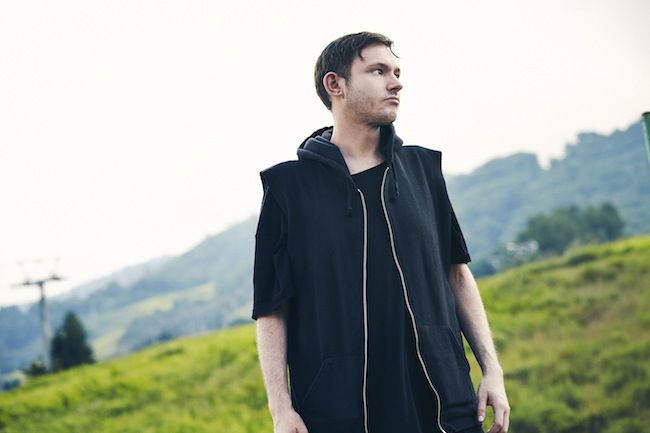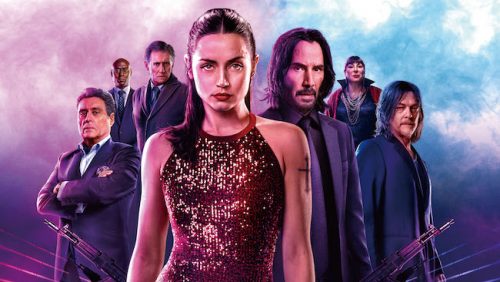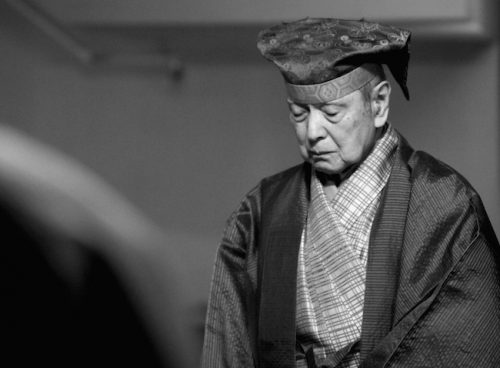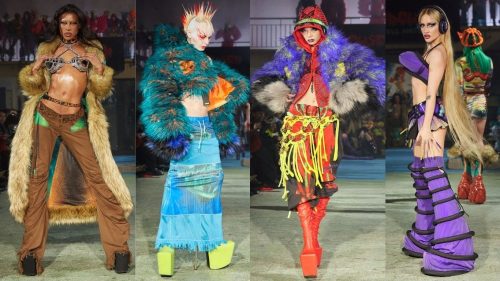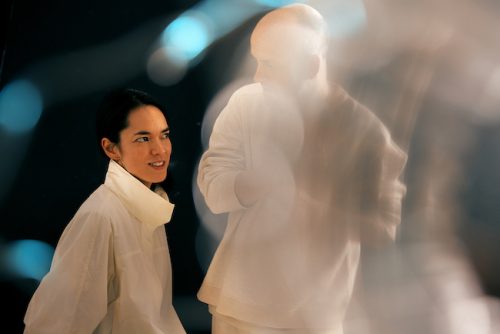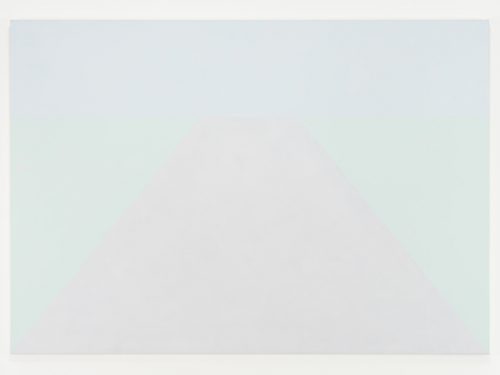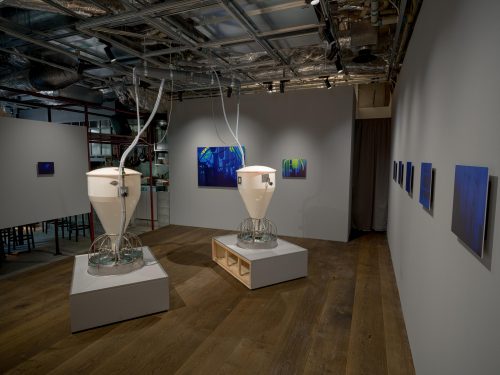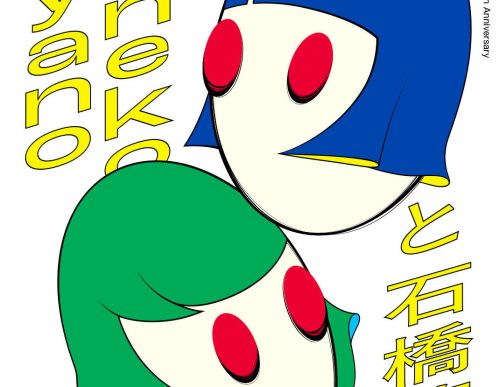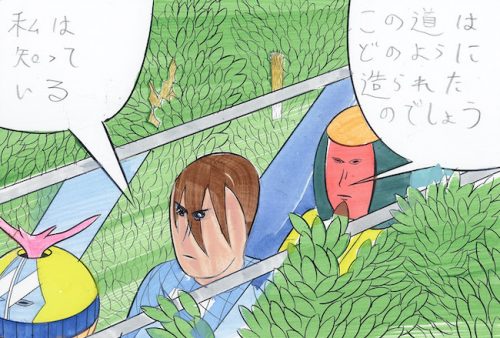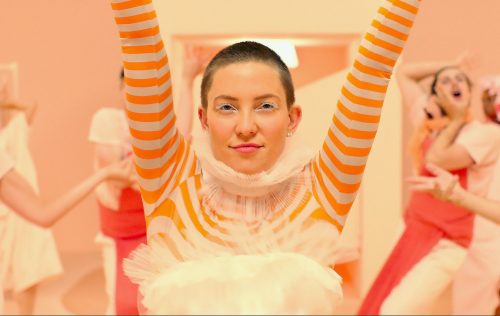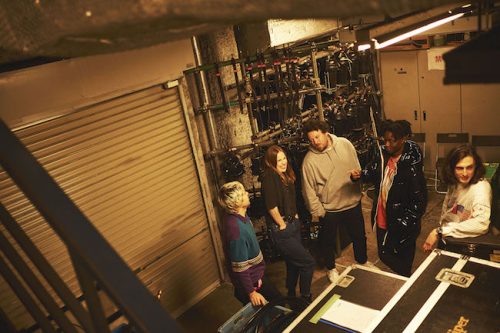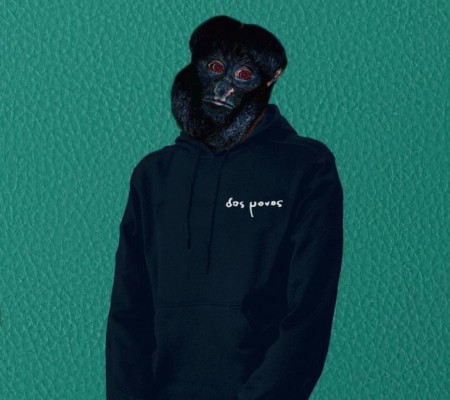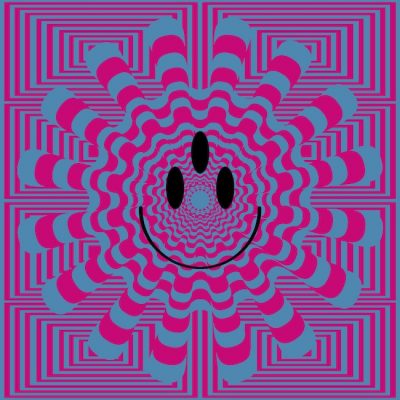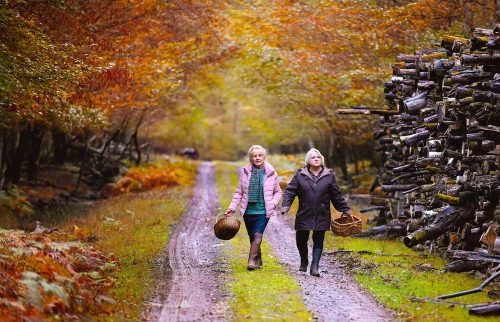ーーアルバムを通して聴いていると、まるでラジオを聴いているような、流れや物語があるような気がしたんです。ミュージックを詰め合わせた、というより流れを意識したソングがそこにある、というか。
ハドソン「うん、実際、それが僕らがやろうとしたことだったんだよ。たとえ今ではみんながアルバムを最初から最後まで聴くようなことをせず、トラックごとに聴くほうが一般的だったとしても、僕はそれぞれのトラック同士が流れを持つように自分でも感じられる、全体像のある作品にしたかったんだ。それこそさっき言ったように、全体的なリスニング体験ができるような。あと、曲ごとに聴くっていうのは言ってみればiTunes的なことだと僕は思うんだよね。レコードから自分の好きなトラックだけを買って聴くわけだから。その一方で、Spotifyっていうのは(アルバムの)全体を通して聴くことができる。そういう意味で、アルバムを通して聴く、というメンタリティが最近は再び戻ってきたように感じてるんだ」
ーーなるほど。ジェネイ・アイコやアンソニーの参加した曲はあなたのメロディーやソングを作る能力にハッとしました。こういう曲たちを書きたいという気持ちはいつごろから?
ハドソン「僕が、コラボレーション・ワークを前よりやるようになった頃かな。2012年とかそのあたりのことなんだけど。その頃、ベッドルーム・プロデューサーではなく、もっと全体的なプロデューサーというものになりたいと思うようになった。単なるビート・メーカーとかそういうものじゃなく、ね。人とコラボレーションするというのはやっぱりある種の心構えが必要で、なぜなら、彼らの視点というものも受け容れないといけない。自分の視点だけに固執して、他の人のオピニオンを受け入れないとかじゃなくてね。2人や3人の人の意見をミックスするテクニックを学ぶ必要がある。だから、僕はその時点から学びはじめて、このレコードではそれをより進めていきたいと思った。だから、そういう曲をレコードに含めることに決めたんだ。僕はいつも仕事をしたいと思っていたアーティストたちがいたし、このレコードのヴォーカル・トラックにフィーチャーされてもいるんだけど、昔は、僕はただインターネットでアカペラをダウンロードして、そこから曲を作るしかやり方がなかった。一度も実際には、これらの曲を作るときに同じ部屋で一緒に作ったりはしてこなかったんだよね。だから、誰かのアカペラを盗んでいたのと(笑)、今回は実際にコラボレーションした、という違いがあるね」
– I see. When I listened to the album from the start to the end, it felt like I was listing to the pirate radio, like there was a story through the album. Were you conscious about creating a flow since this is more like a project than the collection of bunch of songs?
“Yeah. That was kinda what we tried to do really. Even though I appreciate that a lot of people don’t really listen to albums from the start to finish anymore, a lot of people just listen to one track or two, I wanted to make something which was like a full piece, which I felt all the tracks worked back to back. As you said, in terms of full listening experience. I also think that people only listening to single tracks is part of… that is kind of the iTune’s thing. With iTunes, people just buy their favorite track from the record. But with Spotify, you listen to the full record. So, that kind of mentality of listening to the whole record, I kinda feel like that’s coming back a little bit. It’s been sort of not there for a couple of years.”
– That’s really interesting. I think it’s very positive that you named the last track, which is the end of the flow, “Brand New World.”
“Yeah. It’s a bit of a reference to some of my old material because it had a bit more of the vibe in terms of it being very sample based. So funny story that we went to clear the sample for that song and it’s the group from the 1980’s in UK, and their response was that they would clear the sample if I teach one of their nephews how to make beat. (laughs) and I was like, “Okay. That’s fine.” (laughs) And so, yeah, I wanted to have little elements with through the record of sample based music even though it’s not really what I make a lot of nowadays. A lot of people don’t do it anymore because… If you try to make money from the records, you don’t wanna have samples and stuff because you’re fucked. (laughs)”
– Yeah. I know what you mean. (laughs)
“So some songs on the record, the percentage in terms of what the samples, it’s like…most people would be like, “I’m not doing it. No chance.” But I was like, “No. I wanna have these songs on the records. I wanna have them included. If it takes some percentage, you and I only gonna retain 10% or something, or less. But I wanna have the song on my record. So let’s do it.” ”
– A lot of artists try not to use samples because they don’t want to lose the 90%. But what makes you want to use samples?
“It just comes from I think… Just people don’t do that anymore. Because, you know, mainly you’d be approaching a publisher or a record label from 70’s or 80’s, they wouldn’t really know what the expectations were in terms of like how much money they can make. But nowadays they’re like, “No, we’re taking 90%.” whereas in the past maybe in the 90’s or the early 2000’s they weren’t really aware of the percentage. But nowadays, they know the value of particular sample. So much less people are inclining to do that because obviously it takes a lot of money out of your pocket. But if you wanna keep the song, that’s what you have to do.”
– From those songs which featuring Jhene Aiko or Antony, I could see your ability of making songs, not only tracks or music. I think that’s amazing. When did you start having a desire to make songs?
“When I started to do more corroborative work. Which was…2012 or something. I started to become interested in not being like a bed room producer anymore. I wanted to be more like an overall producer of songs rather than just be a beat maker or something like that. So around that point, it was a lot of experimentation, in terms of we have to be in a particular mindset to collaborate with people because you have to accept their point of view as well as yours. If it’s someone who are just working and only sticking to your own point of view, not accept anyone else’s opinion or anything like that, it takes a while to learn the technique of sort of blending two or three people’s effort. I started to learn around that point. For this record, it was something I wanted to explore even farther. So I decided to include those songs. They are the artists I always wanted to work with. People who I wanted to feature on my vocal tracks on the record. But in the past, I would’ve just used… downloaded a cappella from the internet or something. I’ve never actually really worked in a same room and make a song with someone. So it was the difference between stealing someone else’s a cappella (laughs) and actual collaboration.”
